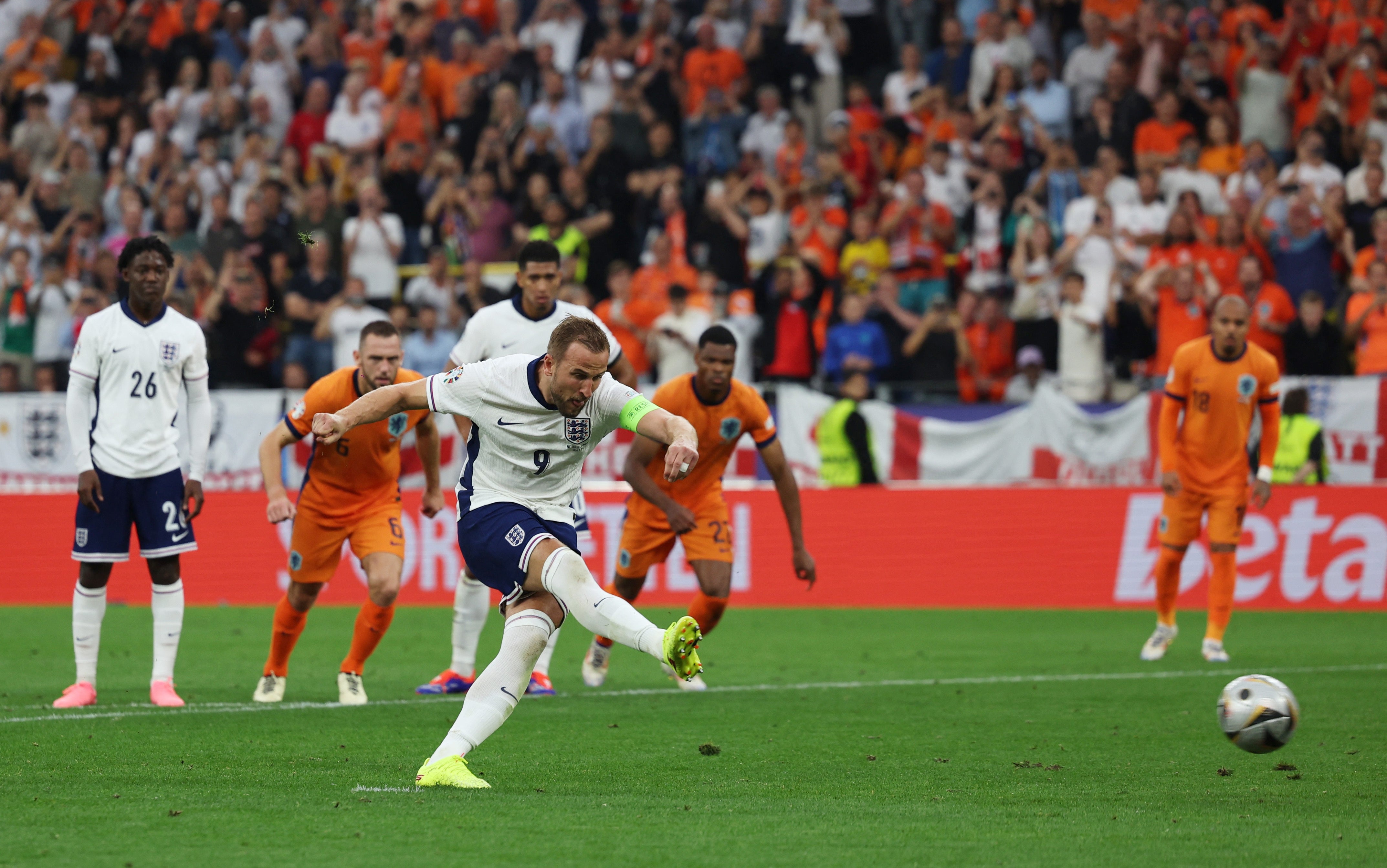And so the ultimate clash of philosophies is off. Spain against England is a final of teams who had seemed to be road-testing theories on the route to Berlin: Spain that it was impossible to win Euro 2024 without playing well in every game, England that it was possible to win it without playing well in any.
Until, as though scarred by the elimination of their soulmates from France, England delivered something that had come to feel out of character: compelling, attacking football. Sluggishness was replaced by speed, disjointedness by moments that demonstrated they could be devastating. Five forgettable games, interspersed only with moments, gave way to a seminal semi-final. After plodding their way around Germany, cocooned in Blankenhain while most of the teams who provided excitement went out, England belatedly stepped up. They head to Berlin buoyed by a buccaneering first half, a brilliant late winner and a glimpse of the team many had hoped they would be.
There was a notion that, stay in Euro 2024 long enough and perhaps England were bound to excel eventually: whether by the law of averages, by key individuals playing themselves into form and fitness, or by developing understanding. The alternative was that they would simply carry on surviving without excelling, that they would bore their way to glory.
No more. They will always have Dortmund, the moment Ollie Watkins silenced the orange wall in Germany’s most iconic stand; the shimmering brilliance of Phil Foden; the dead-eyed accuracy of Harry Kane; the knowledge England had produced their most entertaining performance of Euro 2024 when it mattered most.

There were times when England and France seemed to be staging their own competition to be Europe’s most needlessly dull team, each convincing themselves that this was how trophies were won. Southgate’s team of all the talents had found a way of suppressing each within a collective mediocrity. It was as though they were trying to re-enact the double act of Steven Gerrard and Frank Lampard, only with four of them.
And suddenly England recaptured their fearless streak; maybe that pre-tournament team talk from Ben Stokes had a belated impact, as Gazball began to resemble Bazball. And Foden began to resemble Foden: the Manchester City version, the Footballer of the Year, the mesmerising dribbler with a magical long-range shot. He was inches from two goals: Denzel Dumfries conjured a terrific goal-line clearance after Foden slalomed through the Dutch defence, while he bent a shot from way outside the far post onto the upright.
Southgate has been starved of credit this tournament but he merits some; the change of shape has liberated Foden. There is an assumption that Foden’s best position is as a No 10. Maybe, though, it is as an inside-right, able to cut infield. A 3-4-2-1 shape suits him. Jude Bellingham was deeper at times. Then again, he is used to the centre of the Westfalenstadion pitch from his days at Borussia Dortmund, before he spent more time in the final third with Real Madrid.

Meanwhile – for 20 minutes anyway – Kane traded his impression of an ageing labrador, loyally going through the motions even though its legs won’t work, for that of a sharp centre-forward. With mobility, Kane can show his ability. He has turned himself into a wonderful technician. He showed as much with three shots in a few minutes, culminating with the penalty he dispatched. Come the second half, however, and he again exhibited the (lack of) movement of the 39-year-old Cristiano Ronaldo; Southgate eventually replaced him with a forward whose greatest asset is his movement.
There has been a passiveness to keeping faith with his big names. But there has been a logic, too. Bellingham was the rescuer against Slovakia, Bukayo Saka against Switzerland. Kane has goals in two knockout ties. This was not the day to castigate Southgate for omitting Cole Palmer and Watkins; if there was a temptation to brand Southgate too passive for delaying their introduction, it proved perfectly timed. Their combination took England to their first final on foreign soil, Palmer supplying the pass, Watkins arrowing the finish. Southgate had favoured Ivan Toney as his striking substitute of late. Watkins proved an inspired call.

And perhaps that stunning finish allows us to gloss over much of the second half, when England retreated and reverted to their old selves, as though the first 45 minutes were a fever dream. Sometimes the English disease is to sit back with a lead. This time, they sat back without one. Having taken the handbrake off, they applied it again.
But then they released it again, as Southgate unleashed Watkins and Palmer. Because England don’t just have their four main attacking players. They have a depth of talent that means the understudies can attack, too. And this England, the side seen in Dortmund, may yet be able to play their way to victory.

